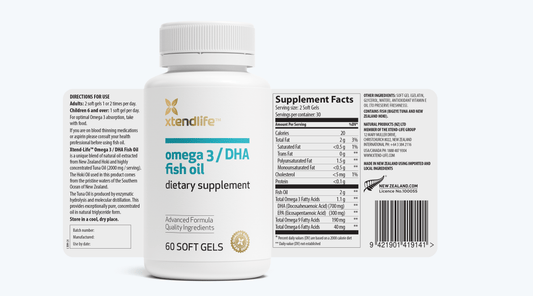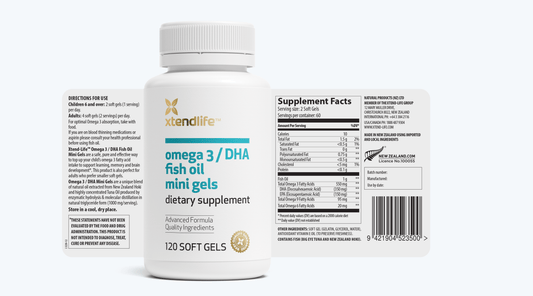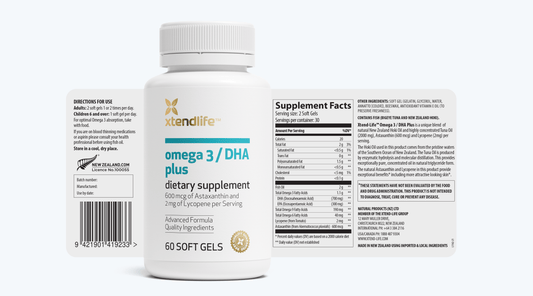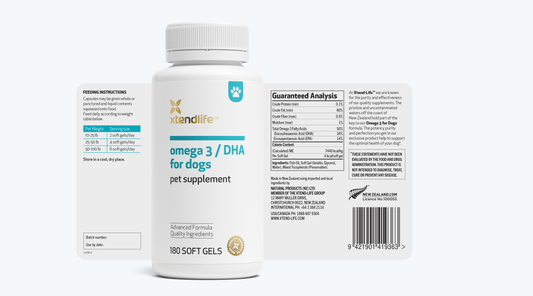DHA

Support for Heart Health
DHA Background
Docosahexaenoic acid (DHA) is an omega-3 fatty acid that is also commonly known as cervonic acid. Its chemical name is all-cis-docosa-4,7,10,13,16,19-hexa-enoic acid, which has the shorthand name 22:6(n-3).
DHA is directly available through diet, primarily from fish oil and breast milk. However, it is also synthesized by microalgae such as Schizochytrium, which is one of the primary commercial sources of algae-derived DHA. Algae-derived DHA offers a plant-based alternative to traditional fish oil, making it an ideal choice for vegetarians, vegans, and those with fish allergies.
Fatty fish, such as salmon, mackerel, and sardines, are some of the most abundant sources of DHA, thanks to their natural accumulation of this essential omega-3 from their diet. Algae-derived DHA also provides a reliable source, offering an alternative for those seeking a plant-based option while maintaining the same key benefits of this vital nutrient. Both sources contribute effectively to supporting overall health.
DHA can also be biosynthesized from alpha-linolenic acid, a shorter omega-3 fatty acid found in plant-based foods. However, the conversion rate in humans is relatively low, making direct sources of DHA, such as algae-based supplements, essential for individuals who don’t consume marine animals or fish oil.
The greatest concentration of DHA in humans is found in the brain, particularly the cerebral cortex. It is also an essential component of other tissues such as the retina, skin, and testicles.
Benefits of DHA
The most significant benefits of DHA supplements deal with the cardiovascular system. Additional benefits include support for the eyes and brain health.
Eye Health Support
DHA may help maintain eye health and function, particularly in aging individuals.
Healthy Cholesterol Level management
Current research suggests that DHA, including algae-derived DHA, may help support a healthy cholesterol profile. The dosages researched for this benefit range from 1.2 to 4 grams per day.
Brain Health Support
DHA supports the brain’s ability to manage neuroplasticity, enabling the creation and rearrangement of neural connections. It may also help with memory recall and cognitive health.
Circulation Support
Oral DHA supplements, including algae-based options, may support healthy circulation and vascular function.

Signs You May Need DHA
Signs of a DHA deficiency primarily affect the nervous and cardiovascular systems. These may include inadequate myelin sheathing around nerve cells, which can contribute to conditions such as attention deficit disorder, low moods due to insufficient omega-3 levels critical for neurotransmitter serotonin, and an unhealthy cholesterol profile.
Xtendlife offers a range of DHA supplements, including Algae Omega-3 DHA, a plant-based, sustainable, and pure alternative to traditional fish oil. This supplement is designed to actively support brain, heart, and circulatory health while catering to individuals seeking vegan or vegetarian options.
Synonyms and Similar Forms of DHA
Omega-3








